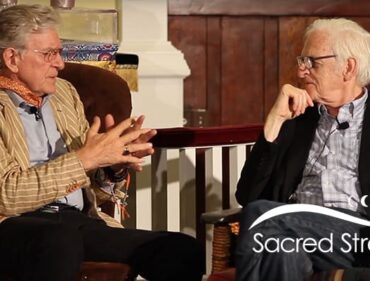Blog: Spiritual Maturity and Depth Hypnosis
By Isa Gucciardi, Ph.D.
People often ask me if Depth Hypnosis is like psychotherapy. If psychotherapy is a process of identifying psychological disturbance and then talking about it, possibly while working with prescription drugs to reduce symptoms, then it cannot be said that Depth Hypnosis is psychotherapy. In Depth Hypnosis there is no process of diagnosis and no use of medication. Rather, it is more a process of inquiry and discovery – particularly about client experience that might be hidden or unknown.
In “The Ten Lessons of Psychedelic Psychotherapy, Rediscovered” Neal M. Goldsmith suggests that it might be more accurate to look at symptoms of imbalance such as anxiety and depression as an indicator of spiritual immaturity rather than as an indicator of psychological pathology. This is an intriguing idea – and certainly one that resonates with the practice of Depth Hypnosis.
It is often our experience on a spiritual level that is most intimate and yet often most ineffable. While our experience of spirit, whether we define it in this way or not, is often not fully developed or understood by many of us, it tends to drive our experience on other levels. We often do not understand this connection and this is why we wind up in a state of spiritual immaturity, at the mercy of symptoms that seem to be coming out of nowhere.
Buddhism offers a paradigm for understanding this experience. It is called karma. There are many different understandings of karma, but for the purposes of this discussion, karma means action, and the basic idea of karma is that all actions have consequences. We often experience consequences without realizing that they are a result of an action we have taken at some point in the past. The inquiry in Depth Hypnosis is focused on understanding how the actions we may have taken, and our responses to actions others may have taken, are affecting us. This inquiry often provides valuable information about our current experience of imbalance.
We often develop habitual patterns, or what can be called karmic patterns, of response based on our previous experience. These responses may or may not be applicable or even appropriate in any given situation, but we may persist in them nonetheless. For instance, if I was bitten by a dog just one time, I may develop a response of avoiding all dogs for the rest of my life in the belief they will bite me. It is understandable that I might have this response, but it is not accurate to think that any dog or all dogs will bite me at any moment and therefore must be avoided. Unfortunately, we all have multiple habitual responses that may not be logically applicable to new situations.
The process of inquiry in Depth Hypnosis seeks to tease out these patterns. From a Buddhist perspective, our karmic patterns drive our experience. From a Depth Hypnosis perspective, the symptoms of imbalance are a function of our karmic patterns that we are generally unaware of. The processes of Depth Hypnosis seek to make these patterns better known. As we learn to know ourselves better, we can better understand what motivates us to take certain actions and better perceive not only the consequences, but how those consequences are related to the problem we are having. This process of developing broader awareness is a process of spiritual maturation.
Editors’ note: If you are interested in facilitating the process of unwinding karmic patterns, you may want to join us for the Depth Hypnosis Foundation Course, which is next offered August 6 – 12. Or, if you want to work with a certified Depth Hypnosis Practitioner, you can find profiles on the Association of Depth Hypnosis Practitioners website.
ENJOYING THE STREAM OF CONSCIOUSNESS BLOG? SIGN UP FOR FREE UPDATES!



